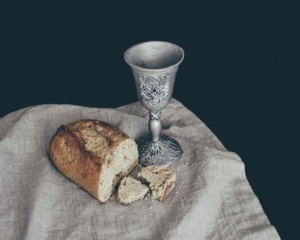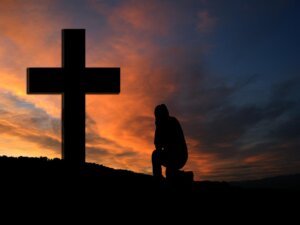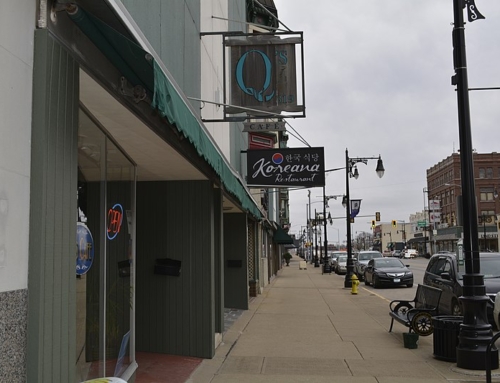There are many different types of churches in the Galesburg area, but two prominent denominations include Baptist and Catholic churches.
Galesburg, IL churches all have different approaches to worship and teaching. Understanding some overarching differences between these two major groups can be a great starting point as you decide on the right church for you and your family.
Church has many purposes: it’s where we fellowship with other believers, actively worship in a group setting, and learn about God through
spiritual teaching. Since church is where we get a lot of information about God and who He is, it’s important to choose a church that’s intentional about teaching accurate, in-depth spiritual truths. The more we know about God, the deeper our relationship with Him can grow.
One significant difference between Baptist and Catholic church services involves what you’ll learn about God when you attend them. While Baptist church services focus more on expository preaching and doctrinal music, Catholic services often involve less preaching, with more focus on ceremonial acts and liturgy. Let’s take a closer look at these differences and how they impact what a typical Sunday morning looks like.
Sermons: In-depth or Surface-Level
In a typical Baptist service, you’ll find that the sermon is a focal point. Baptist pastors usually spend a significant amount of effort throughout the week as they pray, research, and prepare to deliver each sermon. The Bible emphasizes that our thorough knowledge of God, as He is revealed in the Bible, is vital to the Christian life. In Psalm 119:11, the psalmist writes that he has hidden God’s Word in his heart, so he’ll be able to turn to it when he’s tempted to sin. In Isaiah 55:11, God declares that His Word will never go out without accomplishing His intended purpose. Baptists believe that hearing the Word of God faithfully proclaimed, and paying close attention when it’s preached, can make a real difference in a listener’s daily walk with God.
During a Baptist church service, the sermon is treated as a time of reverent learning and reflection, and many church members will take notes in their Bibles or a notebook so they can consider what’s been said throughout the week. No matter what part of the Bible is being preached, Baptist speakers typically focus on learning more about the character and person of God Himself. Check out the “Sermons” page on our website to see what we’ve been learning lately at Harmony Baptist Church!
Baptist church music is also designed to teach listeners about God. In many Baptist churches, especially Independent Baptist, there’s a serious focus on choosing music that offers substantial doctrinal truths, not just a few phrases repeated over and over.
Catholic sermons, on the other hand, tend to be a lot shorter. More time in the church service is taken up by group readings and liturgy, so the sermon (or “homily”) typically takes up just a few minutes. While a homily serves some of the same purposes as a Baptist sermon, the topics and scripture passages are pre-determined by the Church Lectionary, and the homily is typically pre-written and read aloud. While Baptist preachers often prepare sermons based on a particular church body need, world or national event, or prompting from the Holy Spirit, Catholic homilies tend to be more predictable and mechanical.
What About the Rest of the Service?
 A Catholic mass consists of four main parts. The bulk of each section is taken up by liturgical (group) readings and music. Much of the liturgy (pre-written material) recited week after week never changes. In fact, much of what’s said in one Catholic service will be repeated word for word in Catholic services across the whole world, on that very same day. The focus is not so much on understanding and internalizing the words being said, but simply on the act of saying them. Communion occurs during every mass and spans a good portion of the allotted time. Each time communion occurs, the same phrases are typically spoken. There’s a familiarity and rhythm to this constant repetition, but what does the Bible say about repeating the same religious phrases over and over?
A Catholic mass consists of four main parts. The bulk of each section is taken up by liturgical (group) readings and music. Much of the liturgy (pre-written material) recited week after week never changes. In fact, much of what’s said in one Catholic service will be repeated word for word in Catholic services across the whole world, on that very same day. The focus is not so much on understanding and internalizing the words being said, but simply on the act of saying them. Communion occurs during every mass and spans a good portion of the allotted time. Each time communion occurs, the same phrases are typically spoken. There’s a familiarity and rhythm to this constant repetition, but what does the Bible say about repeating the same religious phrases over and over?
In Matthew 6:7, Jesus warns against “vain repetition” as a form of worshipping God. According to Jesus, believers shouldn’t pray and say religious things merely for the sake of speaking. Rather, prayer and worship should be personal, heartfelt, and sincere. Jesus also reminds us that God already knows our hearts and what we need before we ask him. Our focus shouldn’t be on saying exactly the right words at the right time, but on expressing ourselves to God in a meaningful way.
Later in Matthew 6, Jesus proceeds to offer a “model prayer” to help believers learn how to pray in a God-honoring way. Jesus makes it clear that the Lord’s Prayer is merely an example for us to follow. Ironically, in a Catholic service, the Lord’s Prayer is usually repeated word-for-word as a liturgical act.
Where Does the Catholic Liturgy Come From?

Ultimately, the Vatican itself, along with centralized church leadership, determines what the Catholic liturgy contains and how often it’s updated. Local church leadership has very little say over what’s done and said during weekly Catholic masses. Baptist churches, on the other hand, have a lot more freedom to follow the Holy Spirit’s leading when it comes to teaching and learning about God. In John 14:26, Jesus describes the Holy Spirit as a teacher, sent by God the Father, Who will bring the words of Scripture to our minds at key times and help us understand who God is. Because the Holy Spirit indwells individual believers, His work is very personal, and He speaks into specific needs and circumstances when we listen and pray for understanding.
Ready to Learn More About God?
To ensure your time at church is well spent, be sure you’re in a place that actively teaches the truths of God’s Word. At Harmony Baptist Church, our focus is on learning about God as a congregation and worshipping Him together. We’d love to have you join us!






